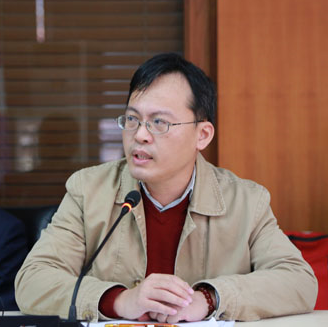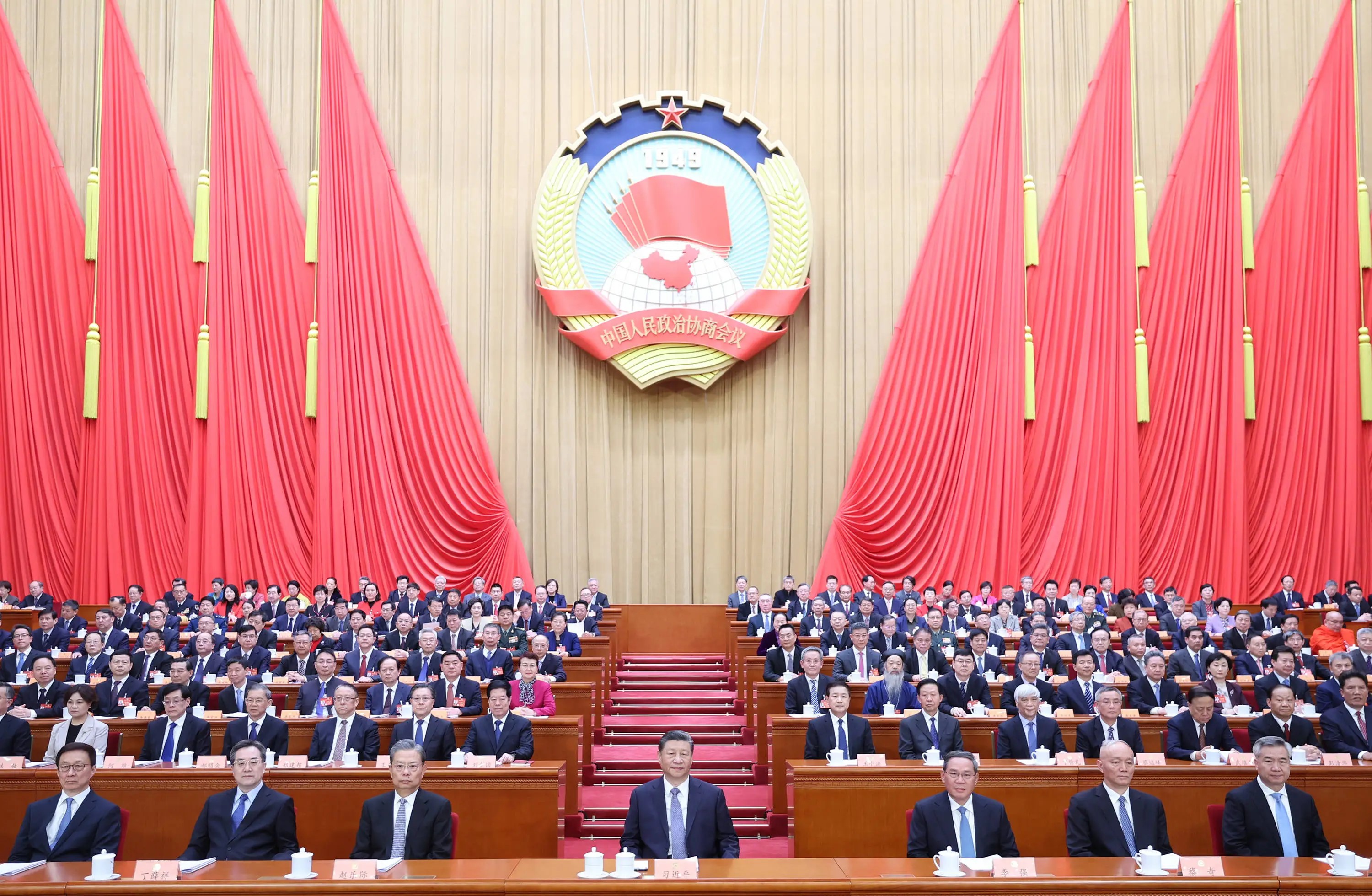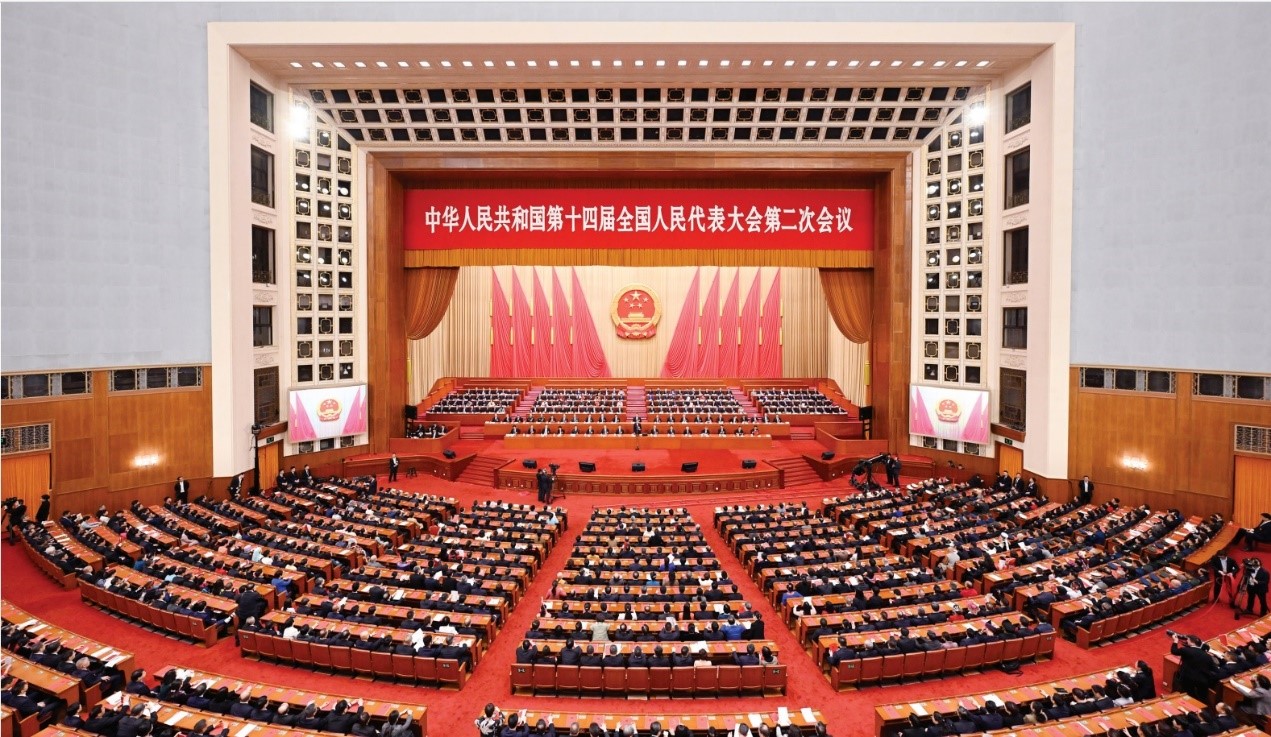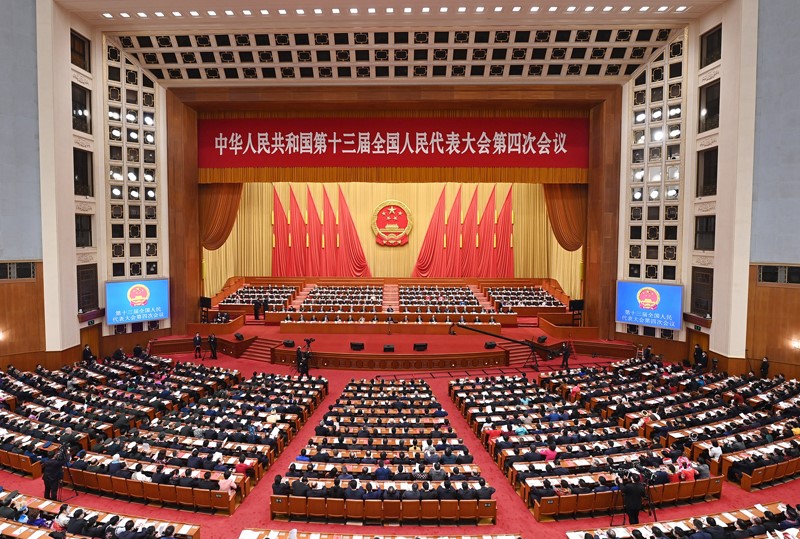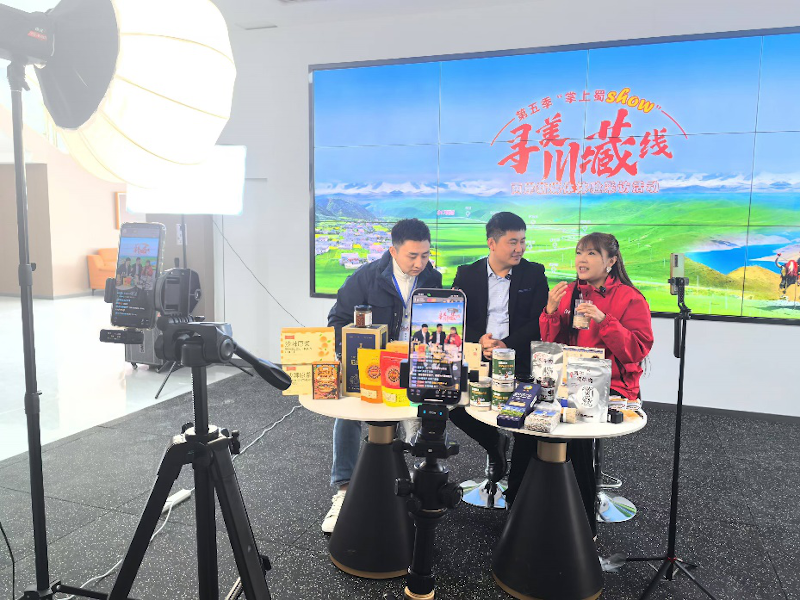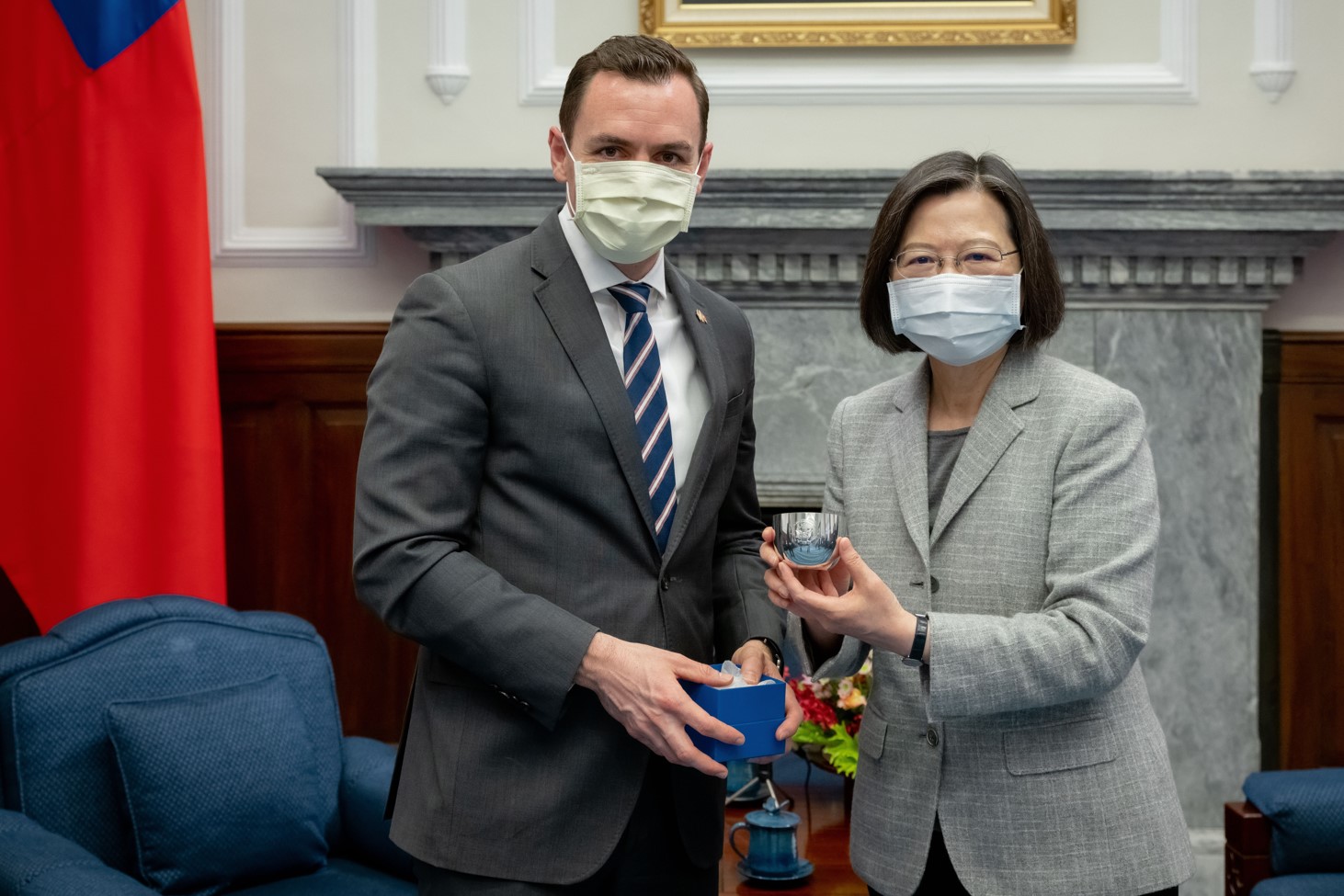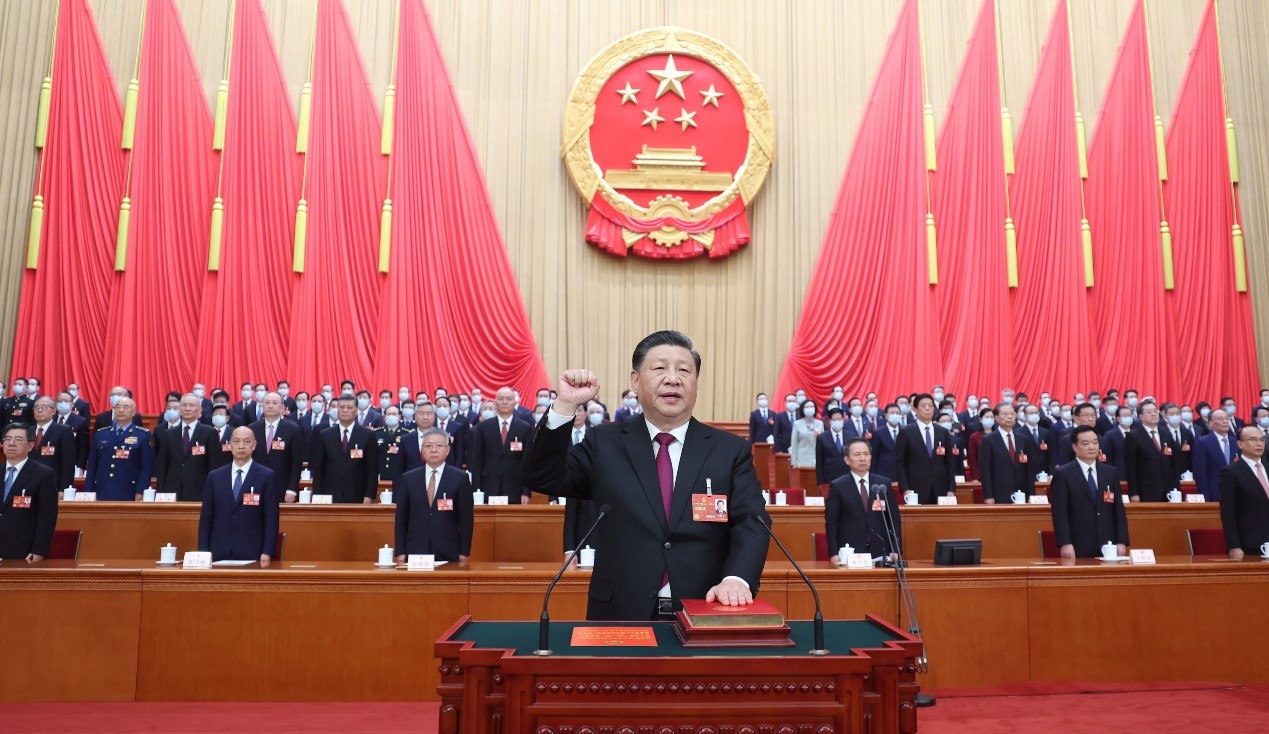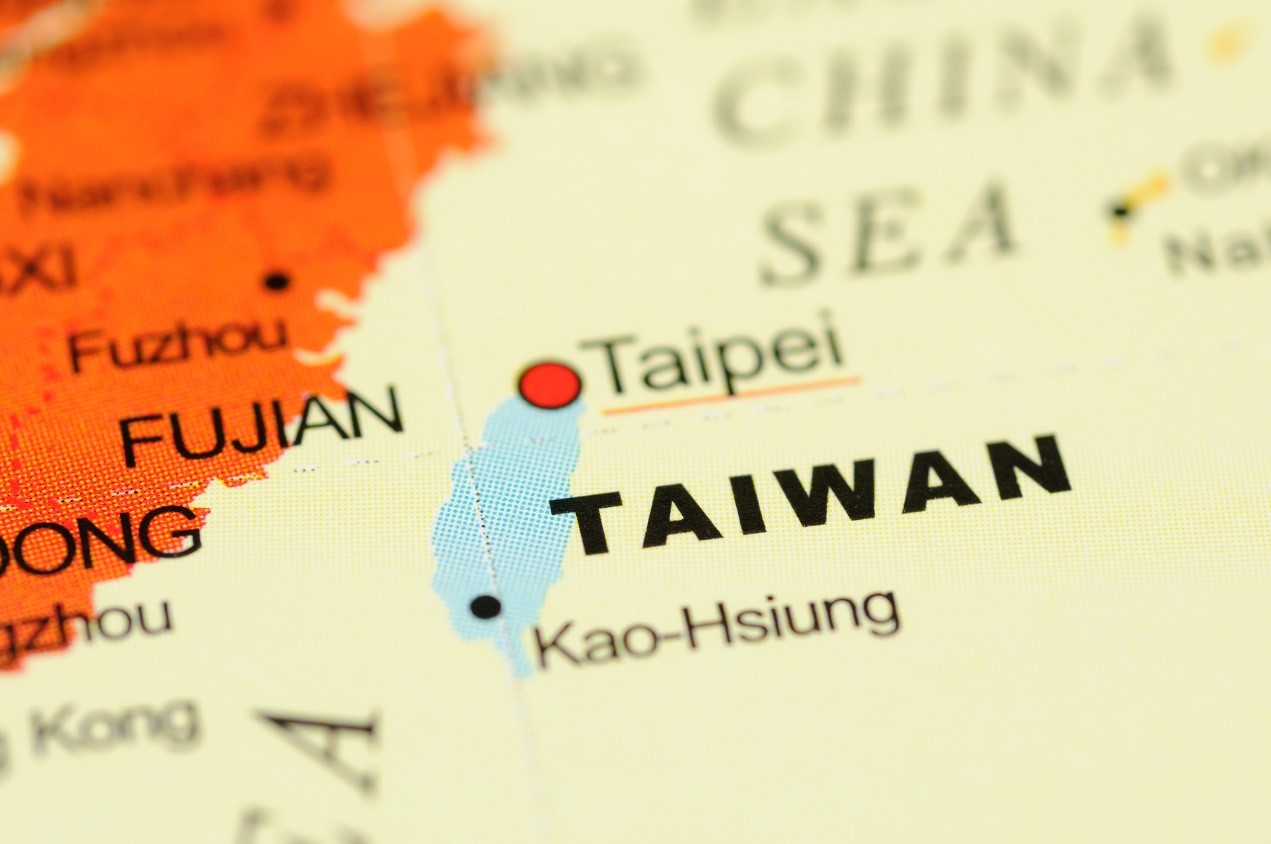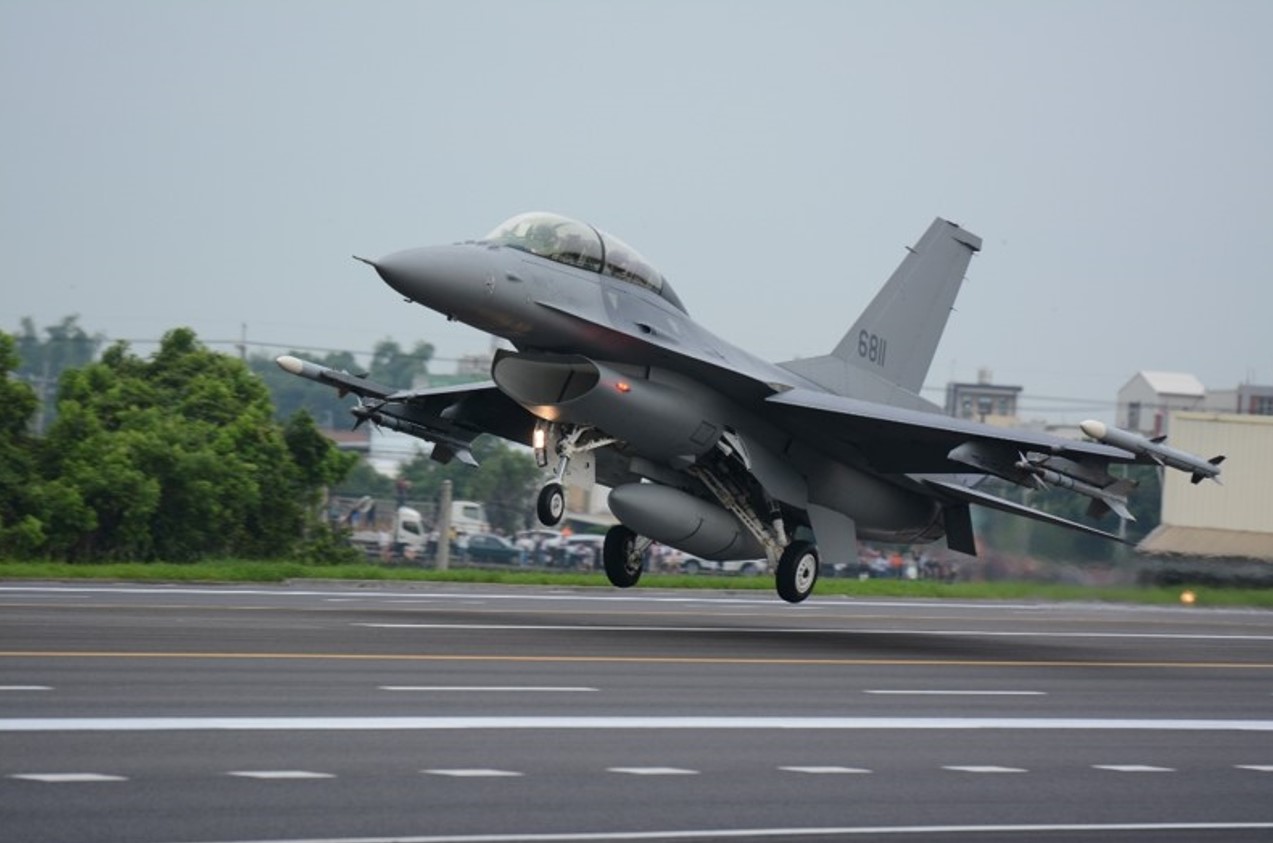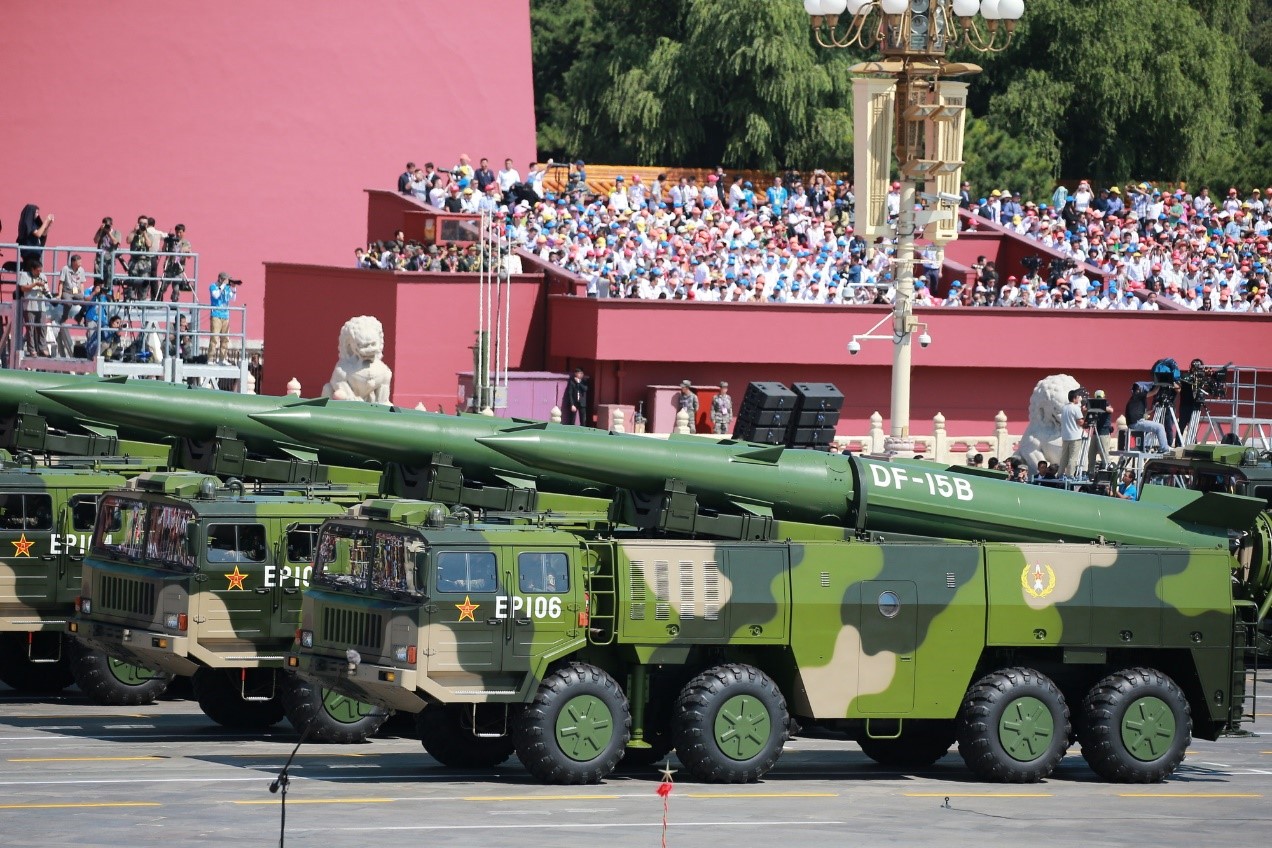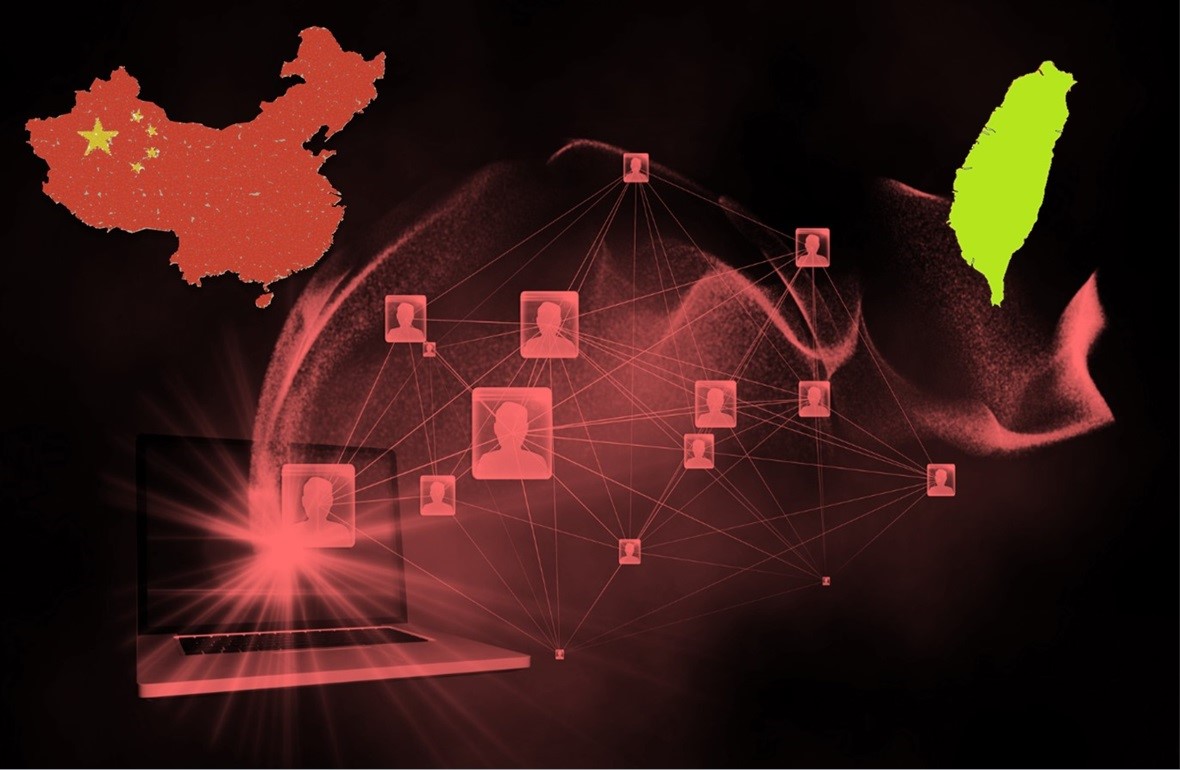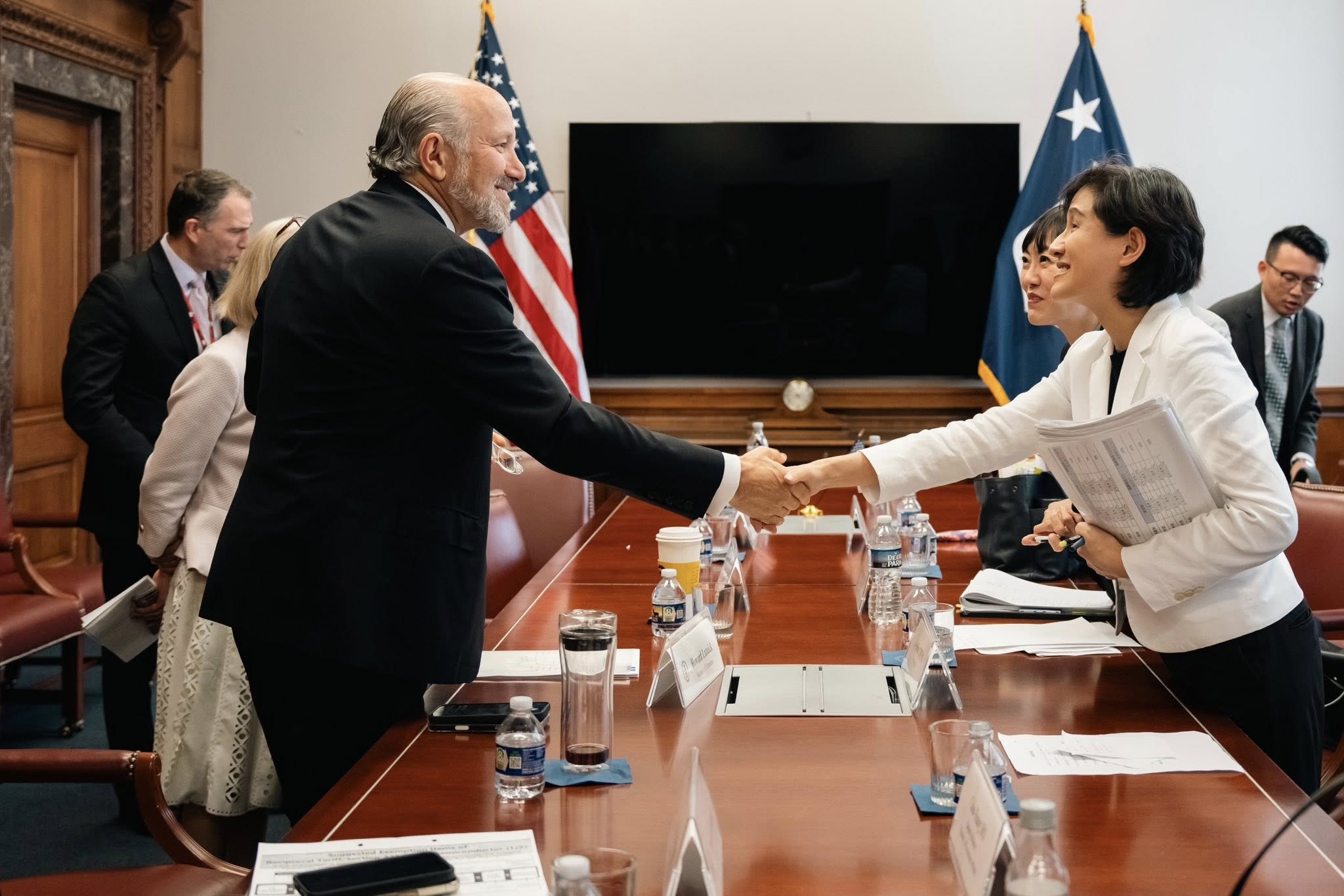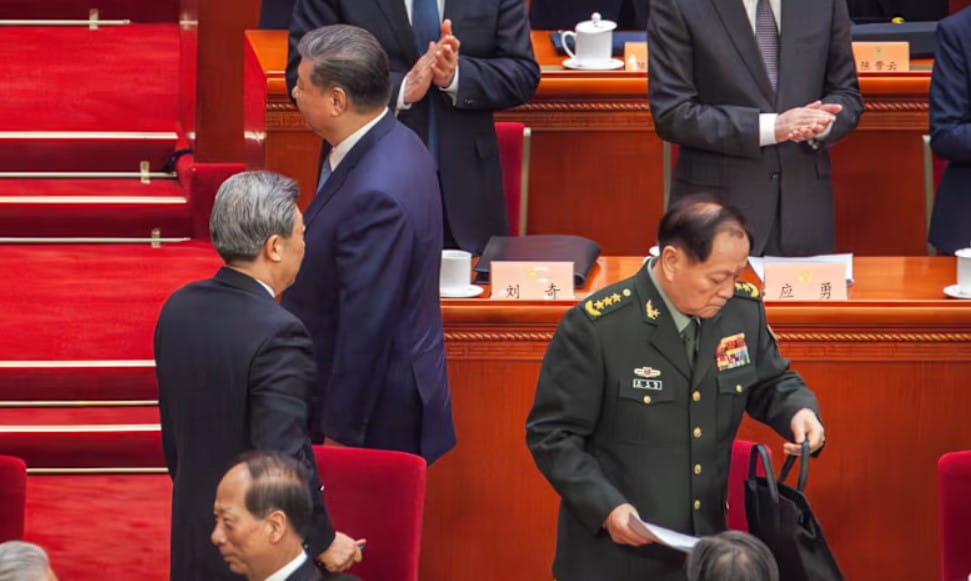China’s ‘Two Sessions’ and Their Impact on the Situation in the Taiwan Strait
The CCP’s Taiwan policy can be examined based on the content of the two sessions. It reveals that although the Lai government has not taken office, the policy of the CCP toward Taiwan has been roughly set. In recent years, the CCP has used legal principles to fight against the Taiwan government and erode its international space. Picture source: 中國政府網, March 11, 2024, 《中國政府網》, https://www.gov.cn/yaowen/liebiao/202403/content_6938898.htm.
Prospects & Perspectives No. 19
China’s ‘Two Sessions’ and Their Impact on the Situation in the Taiwan Strait
By Wen-hsuan Tsai
Regarding the work on Taiwan for this year, the Government Work Report of the State Council and the reports of the National People’s Congress and the Chinese People’s Political Consultative Conference (CPPCC) rarely mention words related to Taiwan affairs. Nevertheless, this year’s reports were relatively different from those in the past. This change is reflected in the subtle adjustments of the Taiwan policy of the CCP under the current situation.
It’s the economy, stupid (with Chinese characteristics)
Economic issues were the most important focus of the two sessions. In the Government Work Report of the State Council, the economic growth target for this year was set at approximately 5%. Moreover, it emphasized that adherence to the “red lines” of unemployment rate, consumption, and food production is necessary. In addition, ultra-long-term special treasury bonds will be issued for major national strategic and security construction.
Achieving the economic growth target of 5% may be difficult. The reason is that current problems, such as weak consumption, a real estate bubble, and a local debt crisis, are relatively severe. Among other important economic issues, they are nearly summarized in terms of new productivity (新質生產力) at this time, which clearly demonstrates that artificial intelligence, future industries and new energy vehicles continue to be the focus of development for the year ahead.
Addressing social issues
The social tasks for this year prioritize two issues. The first is the continuation of the prevention of a large-scale return to poverty; the second is responses to the challenges of an aging society. Both tasks will be implemented on the premise of strengthening political power. Finally, the CPPCC set the task for this year of practicing Chinese-style modernization (中國式現代化) under the leadership of the Party.
In other words, the focus of the two sessions mainly revolves around economic and social issues. At the press conference of the CPPCC meeting, spokesman Liu Jieyi said that the CPPCC is very concerned about these issues, especially youth employment. Evidently, the severity of the impact of the economic downturn is increasing. However, one can also see that the approach of the CCP is to establish a link between economic and security issues. For example, Xi emphasized “promoting the efficient integration of new productivity and new combat.” (推動新質生產力與新質戰鬥力做高效融合). Truly enhancing foreign investment and market confidence using this manner of linking national security and economic issues may be difficult.
A new approach to Taiwan?
In terms of the Taiwan policy — which is of greatest concern to the Taiwanese government and people — the relevant documents of the two sessions scarcely mention terms such as Taiwan or cross-Strait. Against the background of the January presidential election in Taiwan and the stable communication between the United States and China, the views of the CCP on cross-Strait relations are generally stable. Moreover, the Party believes that the current cross-Strait risks are remain controllable. Notably, however, cross-Strait disputes due to local or accidental incidents may become an entry point for the CCP to strengthen its assertion of jurisdiction over Taiwan. An example of this notion is the incident in Kinmen waters in February.
At the end of February, Wang Huning, the chairman of the CPPCC, mentioned his basic position on Taiwan work for this year at the Central Conference on Taiwan Work. Particularly, the CCP did not mention that “both sides of the Taiwan Strait are one family” (兩岸一家親) and changed the word oppose Taiwan independence to attack Taiwan independence. Evidently, the work against Taiwan for this year should focus on the “anti-independence and promotion of reunification” and the reduction of Taiwan’s international space. Especially after President Lai Ching-te takes office, the CCP intends to gradually toughen its Taiwan policy.
In addition, analysis of Xi’s authority, based on the cancelation of the press conference during the two sessions, suggests that Xi is extremely concerned about political security. This demonstrates that party cadres or elders will likely criticize him by. Although no signs exist that the power of Xi is being challenged, cadres or the public are dissatisfied with his policies, especially with the decline in the livelihood of people due to the severe economic downturn. However, the collapse of the Xi regime would not necessarily help stabilize the situation in the Taiwan Strait. The best scenario for Taiwan may be that the Xi regime continues to exist for 10 years, and the Taiwan government actively develops its national power and military during this period to increase the cost of the military invasion of Taiwan.
Finally, the CCP’s Taiwan policy for the next year can be examined based on the content of the two sessions. It reveals that although the Lai government has not taken office, the policy of the CCP toward Taiwan has been roughly set. Nevertheless, room remains for adjustment on the relevant details. This will depend on President Lai’s position in his inaugural speech on May 20. From the current point of view, the two sides of the Taiwan Strait have been relatively restrained in addressing the incident in Kinmen. If no other major incident occurs, the likelihood of conflict will be low. However, the Taiwanese government still needs to pay attention to the subsequent impact of those incidents. In recent years, the CCP has used legal principles to fight against the Taiwan government and erode its international space. Such measures will only become tougher in future. While not going out of its way to overly anger the CCP, the Taiwanese government must also form certain alliances with other major powers to contain the threat the CCP poses to peace across the Taiwan Strait.
(Dr. Tsai is Research Fellow, Institute of Political Science, Academia Sinica (Taiwan).)

